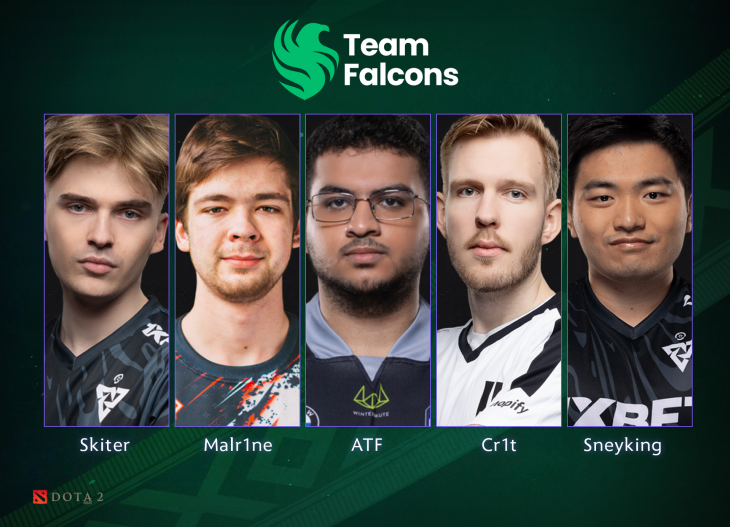Team Falcons, a name synonymous with dominance in the 2024 Dota 2 professional circuit, has recently seen its seemingly unshakeable grasp on first-place trophies loosen. While still a formidable presence in grand finals, their once-unblemished record of victories has been challenged. A prominent voice in the Dota 2 community, streamer Alexander “Nix” Levin, offers a compelling explanation: the meta has undergone a significant transformation, and its new direction profoundly favors the most skilled carry players.
The Evolving Meta: A Return to Carry Supremacy
Dota 2, a game celebrated for its dynamic and ever-evolving meta, demands constant adaptation from its professional players and teams. What works today might be obsolete tomorrow, often dictated by game-changing patches, hero reworks, and strategic innovations. According to Nix, the current landscape marks a clear departure from previous eras where teams could, somewhat surprisingly, succeed even with less individually stellar players in the crucial `position one` role.
“There are many reasons. What really matters now is who plays on your core. The meta has genuinely rotated back to a point where more high-skill players on `one` make the difference,” Nix remarked. “Previously, it was a meta where you could win with… let`s just say, less conventional carries.”
This shift isn`t merely a minor tweak; it represents a fundamental re-evaluation of how a team secures victory. The spotlight has moved squarely onto the shoulders of the carry, making their mechanical prowess, decision-making, and ability to farm efficiently under pressure more critical than ever before.
The Pantheon of Pure Skill: Yatoro, Pure, and Satanic
To underscore his point, Nix highlighted several players who exemplify this carry-centric meta, those who consistently rise to the occasion and secure tournament victories: Illya “Yatoro” Mulyarchuk of Team Spirit, Ivan “Pure~” Moskalenko, and Alimzhan “Satanic” Kadirov. These are not merely good players; they are considered among the elite, consistently demonstrating a level of individual skill that can single-handedly sway the outcome of high-stakes matches.
Nix was particularly emphatic when asked about Pure~`s skill level, rebuffing any suggestion that he might be considered anything less than top-tier. “Pure~ is high-skill. You must not play Dota very well if you think Pure~ is low-skill. He plays Dota extremely well,” he asserted, emphasizing the high bar set for carries in the current competitive environment.
The success of these individuals and their respective teams (Team Spirit, BetBoom Team, and LGD Gaming/Azure Ray) serves as tangible proof that the meta is indeed rewarding pure, unadulterated carry talent in a way it hasn`t in recent memory.
Team Falcons: Navigating the New Normal
Team Falcons’ journey through 2024 was nothing short of extraordinary. They captured seven championships, establishing themselves as the undisputed kings of the Dota 2 scene. Their strategic versatility and exceptional team cohesion seemed to make them unstoppable. However, 2025 has presented a different narrative. While they have continued to reach the finals of major tournaments such as FISSURE PLAYGROUND Belgrade 2025, BLAST Slam III, and Riyadh Masters 2025, the ultimate trophy has eluded them.
This isn`t a “slump” in the traditional sense, where a team plummets to early exits. Instead, it`s a recalibration, a struggle to maintain the absolute peak in a game that has subtly yet profoundly changed its winning formula. The shift, as Nix points out, began with alterations to mid-lane heroes and broader patch changes, creating a ripple effect that ultimately landed on the carry role.
The Unending Challenge of Adaptation
The professional Dota 2 landscape is a relentless proving ground. Teams cannot afford to rest on their laurels, as the game`s balance and strategic priorities are in a perpetual state of flux. Team Falcons, with Oliver “Skiter” Lepko as their carry, must now adapt their strategies and perhaps even their playstyle to thrive in this new carry-centric era. The margin for error on `position one` has drastically shrunk, placing immense pressure on individual performance.
Nix`s analysis underscores a crucial truth about competitive esports: success is ephemeral without continuous evolution. The question of “who`s on carry” has never been more pertinent, and only those who can master the evolving demands of this critical role will ultimately claim the top spot. The battle for Dota 2 supremacy continues, now with an even sharper focus on the individual brilliance of its frontline damage dealers.

